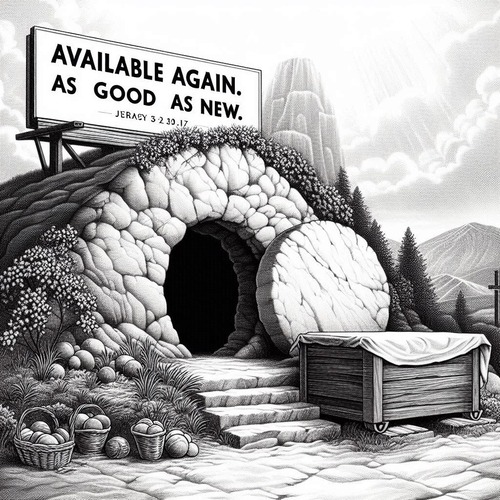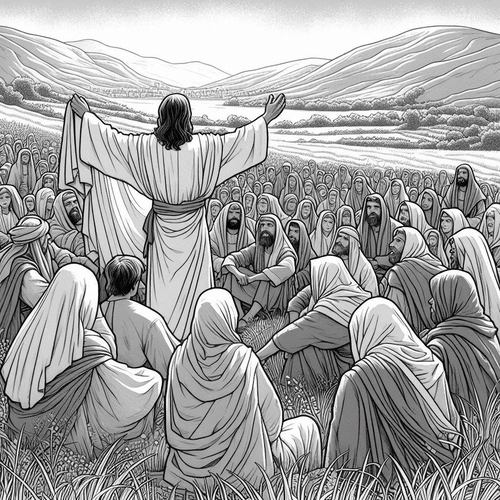Some Standing Here Will Not See Death: What Did Jesus Mean?
Jesus’ words leap off the page with startling immediacy: “Truly I tell you, some standing here will not taste death before they see the Son of Man coming in his kingdom” (Matthew 16:28). This is no ordinary biblical statement. It is a prophetic declaration that has challenged biblical scholars, theologians, and believers for centuries, presenting a textual puzzle that demands careful, reverent examination.
THE TEXTUAL AND HISTORICAL LANDSCAPE
To understand this verse, we must first situate it within its broader scriptural context. Matthew 16:28 emerges at a critical juncture in Jesus’ ministry, immediately following a series of profound revelations and confrontations. In the preceding verses (Matthew 16:21-27), Jesus has just:
- Predicted His own suffering and death
- Rebuked Peter’s resistance to this divine plan
- Challenged His disciples with the radical call to self-denial and cross-bearing
The verse is the culminating statement, bridging Jesus’ difficult teachings about discipleship with a mysterious promise of future revelation.
COMPETING INTERPRETATIVE APPROACHES
- The Transfiguration: Many scholars argue Matthew 16:28 finds its immediate fulfillment in the transfiguration, which occurs just six days later (Matthew 17:1). Peter, James, and John witness Jesus’ glory on the mountain as His face shines like the sun and His clothes become white as light. Moses and Elijah appear, representing the Law and the Prophets, and God the Father declares, “This is my beloved Son, with whom I am well pleased” (Matthew 17:5). This moment gives the disciples a foretaste of Christ’s glory and the kingdom’s power. It confirms the promise of Matthew 16:28 was fulfilled in part through this event.
- The Resurrection and Ascension: Another view sees the fulfillment of Matthew 16:28 in Jesus’ resurrection and ascension. In these events, Christ conquers sin and death, inaugurating His kingdom in a definitive way. The disciples, particularly the apostles, witness His risen glory and receive the Great Commission to proclaim His reign to the nations (Matthew 28:18–20).
- The Coming of the Holy Spirit at Pentecost: Some argue that Pentecost represents the fulfillment of Jesus’ promise, as the Holy Spirit is poured out on the disciples (Acts 2). This event demonstrates the power and presence of Christ’s kingdom in a transformative way. The Spirit empowers the apostles to preach the gospel, perform miracles, and expand the kingdom of God, fulfilling Jesus’ promise that His followers would see the reality of His reign.
- The Fall of Jerusalem in AD 70: Some argue Jesus refers to the destruction of the Temple in AD 70. This event marked a decisive judgement on the old covenant system and demonstrated the advance of Christ’s kingdom. While this interpretation has merit, it seems less immediate than the transfiguration within the narrative flow of Matthew’s Gospel.
- The Second Coming: A misunderstanding of Matthew 16:28 arises when it’s linked to the Second Coming. Jesus clearly teaches His return will be a future event, marked by universal recognition (Matthew 24:30–31). The disciples’ expectation of the kingdom’s immediate arrival is corrected throughout the Gospels (Acts 1:6–7).
THE REFORMED THEOLOGICAL PERSPECTIVE
From a Reformed perspective, Matthew 16:28 reflects the already/not yet nature of Christ’s kingdom. The kingdom is inaugurated but not yet fully consummated.
The transfiguration is the most immediate fulfillment of Jesus’ promise. In this event, Peter, James, and John glimpse the majesty of Christ, who is both the suffering servant and the exalted king. Peter later reflects on this experience, writing:
“We were eyewitnesses of his majesty… For when he received honour and glory from God the Father, and the voice was borne to him by the Majestic Glory, ‘This is my beloved Son, with whom I am well pleased,’ we ourselves heard this very voice” (2 Peter 1:16–18).
Additionally, Christ’s resurrection, ascension, and the outpouring of the Holy Spirit at Pentecost further reveal the kingdom’s power. Each of these events confirms Jesus’ authority and the advancement of His reign.
CONCLUSION: A PROMISE FULFILLED AND CONTINUING
Matthew 16:28 is not a riddle or a failed prophecy but a glorious promise fulfilled. Through the transfiguration, resurrection, and ascension, Jesus revealed His kingdom to those who followed Him. For believers today, this passage encourages us to rest in the certainty of Christ’s reign and to eagerly await the day when His glory will be revealed in full.
May we, like the disciples, behold the majesty of Christ and live in the light of His kingdom.
SOME STANDING HERE WILL NOT SEE DEATH: RELATED FAQs
Why did Jesus use the phrase “taste death” instead of simply saying “die”? The phrase “taste death” is a vivid expression emphasising the personal and experiential nature of death. In this context, it underscores the certainty of life’s finitude, while offering hope that some would witness significant kingdom events before experiencing it.
- Does Matthew 16:28 suggest the kingdom of God is purely spiritual, not physical? While the kingdom of God is currently manifest spiritually in the hearts of believers, it is not merely spiritual. Reformed theology affirms Christ’s kingdom will be fully realised in a physical, renewed creation at His second coming (Romans 8:21-23).
- How does this verse connect with the covenant promises of God? This verse reflects God’s covenant faithfulness by showing the unfolding of His redemptive plan in history. It demonstrates that the promised Messiah has inaugurated His kingdom, fulfilling the covenant promises made to Abraham, David, and the prophets.
What hope does Matthew 16:28 offer to Christians today? Matthew 16:28 reminds believers that Christ reigns now and will fulfil His promises completely. It offers hope and assurance that the same King who revealed His power to the disciples will one day return in glory to consummate His kingdom.
- Did the disciples fully understand Jesus’ meaning at the time? Likely not. The Gospels repeatedly show the disciples grappling with the nature of Jesus’ mission and kingdom. However, key events like the transfiguration and Pentecost clarified His words and deepened their understanding.
- Why is the transfiguration often seen as the fulfillment of this verse? The transfiguration provides a vivid and immediate display of Christ’s glory, affirming His identity as the Son of God and a foretaste of His kingdom (Matthew 17:1-8). It directly follows Jesus’ words in Matthew 16:28, linking the two events chronologically and theologically.
What role does this verse play in the “already/not yet” framework of eschatology? Matthew 16:28 exemplifies the “already/not yet” reality of Christ’s kingdom. Jesus’ reign has been inaugurated through His earthly ministry and key events like the resurrection, but its consummation awaits His final return, reminding believers to live in the tension of this hope.
SOME STANDING HERE WILL NOT SEE DEATH: OUR RELATED POSTS
Editor's Pick

The Throne-Room Vision: Who Did Isaiah See?
The scene is unforgettable: Isaiah stands in the temple, and suddenly the veil between heaven and earth tears open. He [...]

The Angel of the Lord: Can We Be Certain It Was Christ All Along?
Throughout the Old Testament, a mysterious figure appears: the Angel of the LORD. He speaks as God, bears God’s name, [...]
SUPPORT US:
Feel the Holy Spirit's gentle nudge to partner with us?
Donate Online:
Account Name: TRUTHS TO DIE FOR FOUNDATION
Account Number: 10243565459
Bank IFSC: IDFB0043391
Bank Name: IDFC FIRST BANK






